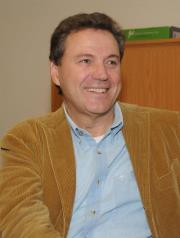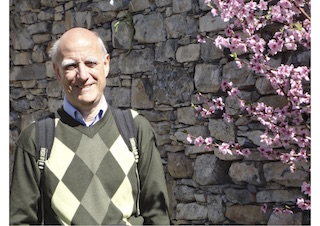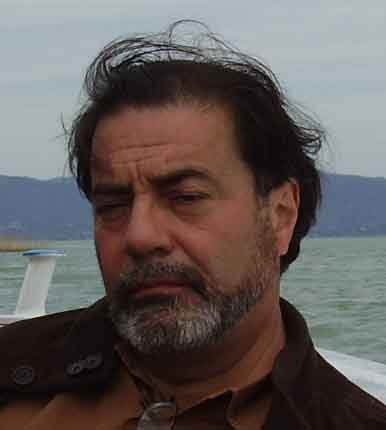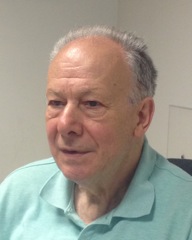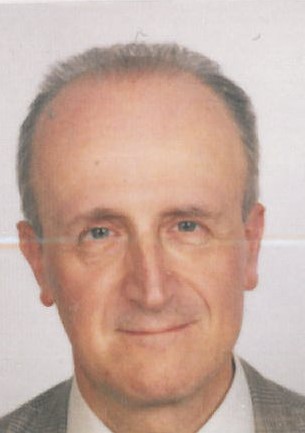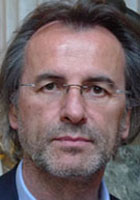Studying at the University of Verona
Here you can find information on the organisational aspects of the Programme, lecture timetables, learning activities and useful contact details for your time at the University, from enrolment to graduation.
Academic calendar
The academic calendar shows the deadlines and scheduled events that are relevant to students, teaching and technical-administrative staff of the University. Public holidays and University closures are also indicated. The academic year normally begins on 1 October each year and ends on 30 September of the following year.
Course calendar
The Academic Calendar sets out the degree programme lecture and exam timetables, as well as the relevant university closure dates..
| Period | From | To |
|---|---|---|
| Sem IA | Oct 1, 2013 | Nov 17, 2013 |
| Sem IB | Nov 18, 2013 | Jan 19, 2014 |
| Sem IIA | Feb 24, 2014 | Apr 20, 2014 |
| Sem IIB | Apr 21, 2014 | Jun 8, 2014 |
| Session | From | To |
|---|---|---|
| Sessione Estiva (Esami sospesi dal 08 al 10 luglio) | Jun 9, 2014 | Jul 31, 2014 |
| Sessione Autunnale | Sep 1, 2014 | Sep 30, 2014 |
| Sessione Invernale | Jan 19, 2015 | Feb 22, 2015 |
| Session | From | To |
|---|---|---|
| Sessione Estiva | Jul 8, 2014 | Jul 10, 2014 |
| Sessione autunnale | Nov 11, 2014 | Nov 13, 2014 |
| Sessione Invernale | Mar 16, 2015 | Mar 19, 2015 |
| Period | From | To |
|---|---|---|
| Festa di Ognissanti | Nov 1, 2013 | Nov 1, 2013 |
| Festa dell'Immacolata Concezione | Dec 8, 2013 | Dec 8, 2013 |
| Vacanze Natalizie | Dec 22, 2013 | Jan 6, 2014 |
| Vacanze Pasquali | Apr 17, 2014 | Apr 22, 2014 |
| Festa della Liberazione | Apr 25, 2014 | Apr 25, 2014 |
| Festa dei lavoratori | May 1, 2014 | May 1, 2014 |
| Festa del S. Patrono S. Zeno | May 21, 2014 | May 21, 2014 |
| Festa della Repubblica | Jun 2, 2014 | Jun 2, 2014 |
| Vacanze Estive | Aug 11, 2014 | Aug 15, 2014 |
Exam calendar
Exam dates and rounds are managed by the relevant Humanistic Studies Teaching and Student Services Unit.
To view all the exam sessions available, please use the Exam dashboard on ESSE3.
If you forgot your login details or have problems logging in, please contact the relevant IT HelpDesk, or check the login details recovery web page.
Should you have any doubts or questions, please check the Enrollment FAQs
Academic staff
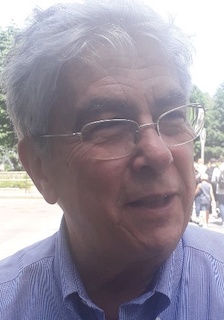
Avezzu' Guido
 guido.avezzu@univr.it
guido.avezzu@univr.it
 augusto.barbi@univr.it
augusto.barbi@univr.it
 alberto.cavarzere@univr.it
alberto.cavarzere@univr.it

Mastrocinque Attilio
 attilio.mastrocinque@univr.it
attilio.mastrocinque@univr.it
 +39 045802 8386
+39 045802 8386
 linda.napolitano@univr.it
linda.napolitano@univr.it
 stefania.pontrandolfo@univr.it
stefania.pontrandolfo@univr.it
 gianmaria.varanini@univr.it
gianmaria.varanini@univr.it
Study Plan
The Study Plan includes all modules, teaching and learning activities that each student will need to undertake during their time at the University.
Please select your Study Plan based on your enrollment year.
1° Year
| Modules | Credits | TAF | SSD |
|---|
Lingua straniera competenza linguistica liv. b1 (informatizzato)Un insegnamento a scelta2° Year activated in the A.Y. 2014/2015
| Modules | Credits | TAF | SSD |
|---|
Un insegnamento a scelta Uno o due insegnamenti a scelta per un totale di 12 cfuUn insegnamento a scelta per un totale di 6 cfuUn insegnamento a scelta3° Year activated in the A.Y. 2015/2016
| Modules | Credits | TAF | SSD |
|---|
Da due a quattro insegnamenti a scelta per un totale di 24 cfuUno o due insegnamenti a scelta per un totale di 12 cfu| Modules | Credits | TAF | SSD |
|---|
Lingua straniera competenza linguistica liv. b1 (informatizzato)Un insegnamento a scelta| Modules | Credits | TAF | SSD |
|---|
Un insegnamento a scelta Uno o due insegnamenti a scelta per un totale di 12 cfuUn insegnamento a scelta per un totale di 6 cfuUn insegnamento a scelta| Modules | Credits | TAF | SSD |
|---|
Da due a quattro insegnamenti a scelta per un totale di 24 cfuUno o due insegnamenti a scelta per un totale di 12 cfu| Modules | Credits | TAF | SSD |
|---|
Legend | Type of training activity (TTA)
TAF (Type of Educational Activity) All courses and activities are classified into different types of educational activities, indicated by a letter.
History of Philosophy A (i) (2013/2014)
Teaching code
4S02151
Credits
12
Coordinator
Language
Italian
Also offered in courses:
- History of philosophy (i) of the course Bachelor’s degree in Humanities
The teaching is organized as follows:
Learning outcomes
Module: II MODULO PARTE (II)
-------
THE RE-BIRTH OF TRAGEDY
In 1872, the young professor of classical philology, Friedrich Nietzsche, published “The Birth of Tragedy from the Spirit of Music”, an essay destined to change the history of Philosophy. It inaugurates a new style of “genealogical” inquiry, the stated purpose of which is to conjure “the forces that seem to be able to guarantee a rebirth of tragedy - and how many more hopes of happiness for the German spirit.” To genealogically question the origin of Attic tragedy is therefore not a scholarly investigation, but rather sets the future of which Germany can already make concrete experience in the music of Richard Wagner.
“The Birth of Tragedy” is the stem of a flower that connects the tragic roots of Schopenhauer’s philosophy with the corolla of Wagnerian music. Our question then is: why, even today, does a tragic community have to be born “aus dem Geiste aus der Musik”? What is the contribution that philosophy can make in this revival?
BIBLIOGRAPHY OF REFERENCE:
- F. NIETZSCHE, La nascita della tragedia, Adelphi, Milano (varie ristampe).
- A. SCHOPENHAUER, L'arte della musica, Clinamen, Firenze 2003.
- R. WAGNER, L'arte e la rivoluzione (followed by: Sul principio del comunismo), Fahrenheit 451, Roma 2003.
- G. GARELLI, Filosofie del tragico, Bruno Mondadori, Milano 2001.
Module: I MODULO PARTE (I)
-------
Program
Module: II MODULO PARTE (II)
-------
Oral exam.
Module: I MODULO PARTE (I)
-------
Examination Methods
Module: II MODULO PARTE (II)
-------
Module: I MODULO PARTE (I)
-------
Type D and Type F activities
Modules not yet included
Career prospects
Module/Programme news
News for students
There you will find information, resources and services useful during your time at the University (Student’s exam record, your study plan on ESSE3, Distance Learning courses, university email account, office forms, administrative procedures, etc.). You can log into MyUnivr with your GIA login details: only in this way will you be able to receive notification of all the notices from your teachers and your secretariat via email and soon also via the Univr app.
Student mentoring
Linguistic training CLA
Gestione carriere
Practical information for students
Documents
| Title | Info File |
|---|---|
|
|
pdf, it, 325 KB, 02/05/23 |
|
|
pdf, it, 212 KB, 02/05/23 |
|
|
pdf, it, 131 KB, 02/05/23 |
Graduation
Documents
| Title | Info File |
|---|---|
|
|
pdf, it, 99 KB, 13/10/23 |
|
|
pdf, it, 101 KB, 10/04/24 |
